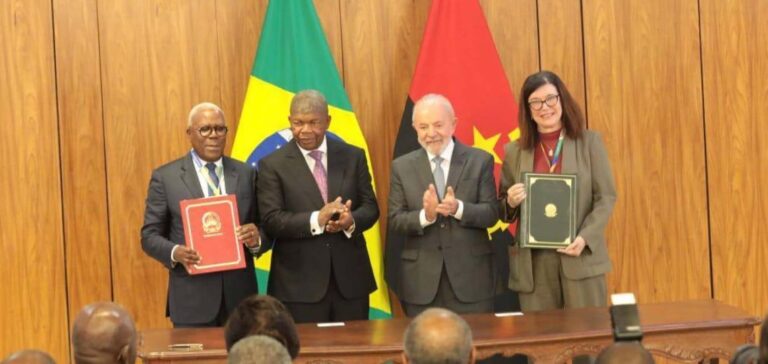Brazilian state-owned oil company Petróleo Brasileiro S.A. (Petrobras) has taken a new step in its international redeployment strategy by signing two memorandums of understanding in Angola. These documents aim to lay the groundwork for enhanced cooperation with Angolan authorities in offshore oil exploration.
The agreements were signed during the state visit of Angolan President João Lourenço to Brazil. One of the memorandums was concluded with Sociedade Nacional de Combustíveis de Angola E.P. (Sonangol), the national oil company, while the other was signed in March with the Agência Nacional de Petróleo, Gás e Biocombustíveis (ANPG), the sector regulator.
A strategy of geographic diversification
The agreement with Sonangol focuses on research and development in the oil and gas segments, while the one with ANPG provides for joint studies to identify new offshore exploration areas on Angola’s continental shelf. These initiatives reflect a logic of technical cooperation without immediate capital injection from Petrobras.
Angola, Africa’s second-largest crude oil producer after Nigeria, maintains output near 1.1 million barrels per day. The country has significant offshore potential, particularly in deepwater, a field where Petrobras has recognised expertise.
Aiming to strengthen South-South partnerships
This return to Angola highlights Petrobras’ broader ambition to reinforce its energy ties with other African countries. According to Nigerian authorities, discussions are also underway for Petrobras to return to Nigeria, where the company is eyeing several offshore blocks.
Petrobras’ interest in Africa has recently materialised through stakes in several offshore blocks in South Africa, São Tomé and Príncipe, and Namibia. In South Africa, the company acquired a 10% stake in the Deep Western Orange Basin (DWOB) block. It also holds 45% in blocks 10 and 13, and 25% in block 11, located offshore São Tomé and Príncipe.
During the signing of the agreements with Angola, Brazilian President Luiz Inácio Lula da Silva welcomed the initiative as the “official return of Petrobras to Angola”, according to statements carried by national media.






















